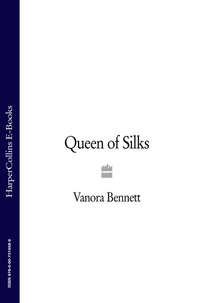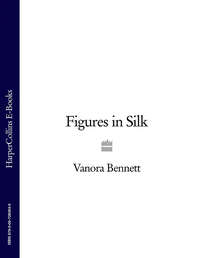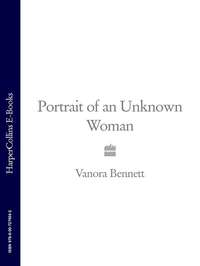
Полная версия
The People’s Queen
Edward doesn’t sigh, quite. But he doesn’t meet her eye, either. Less gently, he says, ‘Dear girl, you have jewels. Your own jewels. A great many of them too.’
She says, ‘But with this robe, Queen Philippa’s rubies would be…’
Smiling over her head, and bowing to her without hearing her out, Edward rises to his feet. The Duke of Lancaster is on the dais and approaching the table.
‘A fine performance, my boy,’ Alice hears Edward boom at his son from over her head. He sounds relieved to have a way of ending this conversation with Alice. Yet the dead Queen’s jewels aren’t official royal gems, not part of the treasury, just Queen Philippa’s private collection of trinkets. There’s no real reason of state why Edward shouldn’t let Alice, or any other commoner, mistress, favourite, or friend, use them. Alice used to have to clean them. It was part of her job as demoiselle, back in the day. She held them up to the light, dreaming. She tried them on. She knows them all. So she keeps nagging him about them, even on the days, like today, when it clearly irritates him. One day, she thinks, without particular rancour, he just might give in – because, after all, why shouldn’t she wear them? She’s doing the work of a queen, so why shouldn’t she have the reward? What good are they doing anyone in their boxes?
She knows, really, why he’s reluctant. Edward wants to keep a part of himself, and his memories, separate from her; he wants a place he can remember the big silvery-blonde Queen he loved for so long. He doesn’t want another woman wearing Philippa’s trinkets. She respects that; she really does. But she can’t help herself. It’s not in her nature not to ask for more.
‘…the rubies would be so perfect…’ Alice finishes, disconsolately. Her voice trails away. There’s no point. Neither of the men is listening.
‘You’re taking a chance, aren’t you?’ Duke John says with slightly rough familiarity, as they step close in the column of couples. Alice doesn’t mind dancing, if it’s the stately, dignified basse dance, and if it’s with him. They’ve talked privately before; she’s spent many a Christmas with Edward and his family. Her estate at Wendover, north of London, is close to part of the Duke’s Lancastrian territory; so they’re neighbours. But he’s never made a public point like this of acknowledging her before. With him at her side, she doesn’t even mind entering the crowd of courtiers who are just a little too impressed by their own noble lineage to enjoy meeting her eye, even though she can see the de Roët women in the line of dancers, and they’re both still as terrifyingly lovely as ever. Ah, who cares? she tells herself, suddenly gay. I’m having a better life than either of them. Katherine’s now the widow Swynford, with a little estate somewhere up in Lincolnshire and several children running wild. And Philippa’s married to one of Edward’s esquires, that clever little elf Chaucer, though no one thinks they’re happy; she scuttled straight back to work with the Duchess of Lancaster, mean Castilian ladies-in-waiting and all, after both her babies, as if nothing would persuade her to stay home with her husband. They’d probably both rather be in my shoes, Alice thinks.
‘My lord?’ Alice replies, too innocently. ‘What do you mean, taking a chance?’
The Duke of Lancaster steps back in time with the lilting twelve-quaver beat, but with an interested look that suggests the conversation isn’t over. A second later, as they lean together again, he goes on, glancing down at her finery: ‘Your robe is almost exactly the same as the Princess of England’s at Christmas…as I’m sure you realise,’ and gives her a challenging smile with one eyebrow raised.
Of course I realise, she thinks patiently. I had Princess Joan’s dress copied, didn’t I? And I did it so you’d notice, didn’t I? The Princess never showed herself at a public court dinner at Christmas; she only attended family occasions. So no one outside the royal family will have seen it. And Edward’s eyes are failing; he never notices the colour of robes any more. It’s a joke for the two of us to share. We’re supposed to draw closer, and wink, and enjoy ourselves watching each other enjoying ourselves poking a bit of fun at the Princess, and then you’re supposed to think: Why, Alice Perrers, you and I, we’re kindred spirits. Two peas in a pod.
But that’s not what she says. She just flirts. She lifts her eyebrows and flashes him a smile that’s all teeth and daring. Demurely, she says, ‘No one else has mentioned a resemblance.’ Then she turns the corners of her lips up again.
She’s rewarded by a deep snort of scandalised laughter. She’s got his attention, all right. He’s shaking his head as he goes through the dance step, looking half-disapproving, but half-amused too.
‘What will you do if she turns up?’ he says. He sounds serious, but she can see that the corners of his lips, like the corners of hers, can’t quite stay down.
Alice knows John of Gaunt is said to love his much older sister-in-law and brother, and be sad that, in the past few years, since the Prince’s illness, they’ve gone cold on him. It’s obvious to everyone they’re scared he’s going to wait till his brother’s dead, then try and steal the throne from the little boy; but perhaps it isn’t obvious to him. People say he misses them. Probably, knowing what a stickler he is for the old ways, the old respect, no one’s ever tried lightening his feelings about losing his brother’s family’s affection by sending that old trout of a Princess Joan up, just a bit.
Alice thinks: I won’t let myself be rattled by the idea of Princess Joan coming here. Serenely, she replies, ‘Why would she?’
It’s unanswerable. They both know Joan of Kent will stay home on her side of the river, in Kennington, with her dropsy-ridden hulk of a husband and her mewling, puking seven-year-old. She was once a beauty, Joan of Kent. They even say she was Edward’s mistress, long ago, before she married his son, though Edward’s never breathed a word of any such thing to Alice. But Joan certainly isn’t the most beautiful woman in England any more, hasn’t been for years – certainly not since Alice first clapped eyes on her. She wasn’t a beauty any more even in her thirties, when she scandalised Christendom by taking for her third husband her royal cousin – a childhood playmate – in the obvious hope of getting a crown when he became king. And she’s fat and forty-five now, and the violet eyes poets wrote about long ago are puffy and mean. She’s hardly ever at court.
Alice thinks: She calls me a gold-digger, but what’s she? She might be a king’s granddaughter, but when it comes down to it, really, she’s nothing better than an old, failed gold-digger herself. Fortune has swung Joan up on her wheel, all right, to the dizzying heights of power, but she’s swung it down again too, and it’s all but destroyed her, poor old thing.
Whereas Alice…Alice sometimes feels the wind rushing through her head as she flies upwards through the golden clouds. And the last thing Alice thinks Joan will want to see is a younger woman lording it there in her place – succeeding where Joan failed – especially a younger woman she’s made a point of snubbing for so many years.
John of Gaunt’s eyes are fixed on Alice. She’s intrigued him beyond measure with this little display of insouciance, she sees. She knows it’s often the men who talk loudest about respect for the old ways who are most nervous of anything new. But she hasn’t expected, until now, to feel timidity behind this man’s arrogance. Hearing the music about to reach its final chord, she adds, quickly, almost comfortingly, ‘…so don’t worry.’
It would be a mistake to linger after that. But she enjoys the flash of discomfiture in his eyes as she bows and retreats to the dais. She doesn’t think her impudence has put him off. She can feel, from the way his eyes are following her across the floor, that he’ll be back for more.
By the time it’s fully dark, Alice has completely forgotten she wasn’t planning to dance. With fresh breezes coming in from the river, and Edward smiling dreamily down at her to the thin skirl of lute and dulcimer, and the stout guardsmen in a living ring of fire around the edge of the hall, each man’s feet planted a yard apart on the stone floor, each strong pair of arms holding a torch, a kind of careless magic enters the air.
She’s laughing and as pink as the rest of them, skipping in and out of the great wavering round of the carole, even clapping whole-heartedly as that born dancer Katherine Swynford does an especially complicated response to the Duke of Lancaster’s advance without losing her poise for a second, and the throng pauses and catches breath so everyone can admire the lovely young widow’s skill.
Alice’s vis-à-vis at that moment is Philippa de Roët’s merry-eyed little husband. She’s always rather liked him. He’s not from the nobility originally either. His father was a City magnate, a vintner, and she senses, in his slightly mocking smile, that sometimes he might find the endless tempers and savage pride of the courtiers as limiting as she does. He’s mopping his brow now and saying hazy but appreciative things of his sister-in-law: ‘Terpsichore…wouldn’t you say? The Muse of the dance…it’s a divine gift, to dance that well…as my own dear wife does too, and’ – hastily he twinkles at her, and bows – ‘your good self, of course, madame.’ Alice bows back. Master Chaucer tails off, in amusing mock-wistfulness: ‘Alas…if only I had the same gift…’
It doesn’t for a moment occur to Alice to wonder what the muffled tramp of feet outside, the horns and flutes, might signify.
It’s only when the already relaxed line of dancers wavers and breaks up, and, unaccountably, the crowd falls silent, like a group of animals at the approach of a predator, that Alice feels danger.
By then it’s too late.
With prickles at her spine, she turns.
Behind her, on the dais, Edward is on his feet, his grey beard streaming down his front, his mouth open. He looks old and dazed. His eyes are fixed on the door.
Through it, walking away from the little troop of musicians and soldiers and rowers she’s arrived with, and down the step straight towards Alice, in the middle of the crowded hall, the Princess of England is stumping.
Joan of Kent is carrying a jewelled goblet of wine that a servant must have hastily pressed into her hand. She isn’t taking any notice of it.
She’s wearing her own red taffeta Christmas robe – just like Alice’s, down to the pattern of the seed pearls.
And she’s staring at the younger woman with empty, frightening eyes.
The courtiers close quietly in as the two would-be queens, in their identical reds, come face to face. The expression on Joan of Kent’s face is that of a woman looking at her reflection in the mirror and hating it. Alice, who’s felt the dread start to wash through her at the sight of the Princess, like cold dirty riverwater, senses their suppressed excitement.
They want a fight, she thinks. They want to see me humiliated.
She clutches at the defiance this realisation brings with it. She needs the anger.
Brightly, she smiles, bows a deep bow, and says, in a loud enough voice for half the court to hear, ‘The Lady of the Sun welcomes you, madame. I am delighted you were able to honour us with your presence…’
Instead of edging back, as every instinct in her body is telling her to, she steps confidently forward, with a gracious hand outstretched towards the bulging silk of the Princess of England’s upper arm.
No one breathes. Now Joan will have to answer with a grated politesse of her own – at least, she would if she were minded to recognise Alice as a noblewoman like herself.
The silence continues for an unbearable moment.
Joan doesn’t bother with politesses, grated or otherwise. She rasps out one phrase. ‘You’re wearing my robe.’
There’s a little intake of breath. Alice is painfully aware of Edward’s eyes on her, from behind. Even he can’t help her now. She’ll have to deal with it herself.
If Joan’s going to insult her, there’s no telling how far she might go. Last year at Council, Joan’s husband had so lost his temper with the Archbishop of Canterbury, whom he suspected of preferring to obey the Pope than his King, that he’d yelled at the trembling prelate, in front of dozens of noblemen, ‘ANSWER, DONKEY!’
Alice squares her shoulders to stop them shaking. She’s not going to cut a pitiful figure like the poor Archbishop, whatever the Princess does. Not being frightened, that’s the key thing. She learned that years ago. Never show fear.
Bravely, she grins. Looking round to catch Edward’s eye, and draw him, from the dais, into this nightmarish conversation, she quips, brightly, perhaps too brightly: ‘Well, you know what they say. There’s never a new fashion but it’s old.’
Breaths are sucked in.
She waits, hardly daring to breathe herself.
At last, there’s a scared eddy of laughter. Alice senses the mood move, the support beginning to flow her way. She sees Edward shake his head in delight, and chuckle. You could always trust Alice to find a good line.
The danger’s past now, Alice tells herself, breathing easier. A laugh always eases things. Forcing herself forward again, she begins, with all the grace and charm she can muster: ‘My lady, allow me to…’
But before she can touch the Princess’s sleeve, so tightly packed with coldly furious flesh around taut muscle that the seams are straining, Joan pulls back her arm.
The older woman looks down, almost in surprise, at the jewelled goblet in her hand.
Then she jerks it forward.
At first, Alice feels the cold shock that comes next as just more of the dread and humiliation that swept through her a moment ago, when she first saw the Princess bearing down on her.
Then she realises there actually is dark liquid on her face and running down her front. Her eyes are stinging from it. She can’t see.
There’s wine all over her.
Alice blinks and breathes, and the claret drips down her hair. Her whole head is wet. She can’t move, even her eyes. She can’t look down and see how badly the robe is damaged. She’s trying to control the surges of humiliation – and rage – rushing through her, the hot and cold of them.
Perhaps the Princess knows she’s gone too far. She goes on standing opposite Alice with the goblet in her hand. There’s no expression on her face.
Alice goes on standing there too, blinking wine out of her face. After a while, she puts a hand to her sopping wet face and brushes a purplish strand of hair out of her eye. She knows there’s nothing she can do that won’t be too angry for court. She can only breathe, and blink, and wait for someone else to take the initiative.
Surely this is an insult to the King, as well as to her? Surely someone in this crowd of self-willed, self-regarding donkeys will defend his honour at least?
But it seems no one, even the King, knows what to do.
Until, after what seems an eternity, a completely unexpected voice pipes up, a nasal-ish, confiding, friendly little male voice, followed by Geoffrey Chaucer, stepping out from behind the Princess. ‘A thousand pardons. A thousand pardons! How could I have been so clumsy? I jogged your elbow, Madame d’Angleterre. There was nothing you could do, nothing at all.’
He’s wringing his hands, and bowing his head over them, and twinkling at the Princess, his slightly thin voice so apologetic, so charming, that the court can’t help but laugh. He has beautiful eyes, and when his face is animated, dancing with wit and intelligence, as it often is, he becomes handsome. Even Joan, who is perhaps almost as shocked by her transgression as Alice, softens as she looks at him, and almost smiles.
‘Utterly my fault; utterly. Amends, how to make them? A pilgrimage…to Jerusalem? No, what good would that be?…To Venice, for more silk, to replace your damaged robe, Madame Perrers, to the cloth fairs?’
Alice wipes her hand across her eyes again. She stares through her tangle of wine-dark hair. How has he done it? The little valet has them all laughing, and joining in his clothbuying fantasy, and forgetting the anger. It’s like a miracle. Of course there’s no way on earth or in Heaven that Geoffrey Chaucer could ever afford the cloth on the back of Alice Perrers, not on his ten-pound-a-year pension and free pitcher of wine a day, but then it’s obviously only a turn of phrase. There’s no need for him to worry particularly. Chaucer can say what he likes. He’ll never be called to carry out the pilgrimage he’s promising. This is pure face-saving improvisation – and a successful improvisation too. Even through the alcohol, Alice can see that the King is grateful to his man for drawing the sting out of the occasion.
Edward steps urbanely forward, bows to Chaucer, and draws his still glowering daughter-in-law up to the dais and out of trouble.
The crowd moves, relaxes and begins to talk (though no one rushes to meet Alice’s eye still). The fairy ring at the centre of the hall around her vanishes. The music starts again.
For a moment, Alice doesn’t know what to do. It is the Duke of Lancaster who steps up to her, very straight-backed, very long-nosed and serious, to offer her a very white kerchief, with which he dabs away the last of the wine, and then his hand, for the next dance. He’s helping her restore appearances, as is proper. Behind his correctness, she sees sympathy in his eyes, and hears it in his voice.
‘Joan can be…’ he begins, as he turns her into the dance. ‘Sometimes…’ But his voice dries up. He’s a nobleman, not the type to wink and shrug and laugh things off, she remembers. He’s here with her in homage to her gallantry; but all the same, he can’t quite bring himself to be verbally disloyal to his sister-in-law.
She nods, so choked with gratitude that, for once, she’s also unable to speak. She hasn’t expected it to happen like this, but she can sense new beginnings. When she passes Geoffrey Chaucer, she’s recovered her poise enough to be able to incline her head and smile. With sparkling eyes, he bows back. And he winks.
‘Why did you do that?’ Philippa Chaucer asks her husband curiously, materialising through the crowd and taking his arm. Geoffrey tries not to show surprise. His wife doesn’t usually stand with him in public. He once heard her say she was embarrassed to have to bend down so low to find his ear to whisper sweet nothings into. It was one of those comments, made sotto voce to her sister over the tapestry, which had, perhaps accidentally, come out just a little too loud.
With all the charm in his armoury, he turns to her, opening his shoulders in an easy-going shrug. ‘Oh…’ he begins non-committally. ‘You know…’ Then he pauses, struck by the fact that he doesn’t really know. It’s ended well, thank God, but it was obviously insane to risk turning the Princess of England’s rage on himself.
It’s not even as if he knows Alice Perrers, especially. She’s just one of those people who’s always been around, at court, pretty much from the time he first came, at nineteen or twenty; he remembers her as rather younger than him, and not from a grand family, one of the waifs the old Queen used to appoint, on a whim, to be snubbed for the rest of their lives by the real nobility. She’s always looked a bit mischievous, though, as if it was never going to get her down that much. He’s always liked that in her. There’s a spark in her pale blue eyes; something that lifts her looks – rounded little limbs, pale skin, curly black hair that often escapes from its headdress – into occasional beauty. Chaucer remembers a younger Alice sitting next to Jean Froissart in church, and whispering something quiet that made the Queen’s boyish chronicler (another of those whimsical royal appointments) curl up and snort and rock with laughter, and then looking utterly composed while poor little Froissart desperately tried to control his shaking curls and heaving sides. That sort of thing was probably what made the Queen take Alice on for a bit when the Duke of Lancaster got one of her established demoiselles pregnant. The Queen, God rest her lovely soul, always loved laughter. And being able to make people laugh probably helped Alice cling on afterwards, Chaucer thinks, even though it was obvious she’d never have the instincts of nobility. She’s tough. She survived until the King got a soft spot for her, even though the things Chaucer’s Philippa said about her, with her sister, both of them looking at each other with those half-closed eyes, like two cats, full of the utter disdain of the born aristocrat for outsiders, which must have been the same sorts of things that other people were saying, were always so unkind…
Well, Geoffrey Chaucer thinks ruefully to himself, recalling moments when Philippa has given him that cat look too, and, raising her long and beautiful nose, referred to his own family’s background in less than flattering terms. Perhaps that’s why. ‘I was just easing things along,’ he tells his wife quietly.
She half closes her eyes. She half smiles. ‘Feeling sorry for the whore,’ she says, and though there’s no obvious cruelty in her voice he feels belittled by the very gentleness of her contempt. She wafts away.
Geoffrey Chaucer goes on standing there, while the courtiers talk around him, louder and louder. He does know, after all, why he intervened. He felt sorry for Alice Perrers, standing all alone with wine dripping down her face and off her hair, and her shoulders shaking, with that bullying old brute glaring at her as if she wished her dead, and a crowd gathered round staring as if they were at the bear-pit, hoping for blood. You could have all the jaunty courage in the world, and still it would do you no good if no one stood up for you.
TWO
Loyalty, Alice thinks, from her chariot, with its burning hot metallic sides. She’s turning her head graciously from side to side. She’s ignoring the low mutters from the crowd, and the heat. It’s almost like the old days, this spring heat, when she was young, before the weather went so cold, with the skies always lowering, the winters piled with snow, the summers passing in fitful grey. Yes, loyalty’s what counts. You stand by the people you’ve got. You help those who help you.
Chaucer’s face keeps swimming into her head, mixed up with fleeting pictures of other people to whom she’s had debts of gratitude, whom she’s seen right. Her last glance back at the hall last night, when she saw Philippa Chaucer stalk up to her husband and start questioning him, and him politely waving her away – clearly refusing an invitation to gossip about Alice – has only confirmed the warmth she feels. She owes him. He won’t regret it.
The procession is passing out of Cripplegate to an especially deafening burst of horns, leaving the worst of the crowds behind. Alice has been focusing her mind on something pleasant she can do for someone, because she hasn’t enjoyed her ride through the City one bit as much as she’d expected. The crowd of burghers has been as hostile as any crowd might be on seeing one of its own elevated beyond what Londoners think is her rightful place. She’s seen the angry eyes, the men being muscled back from around the chariot by the sergeants-at-arms, the gob of wet landing on the side of the carriage, too close for comfort. She’s heard the low hissing, the mutters. Her golden sun-chariot is so low that she’s even made out some of the words. Not just the usual perfunctory unpleasantness due any rich nobleman’s mistress: ‘whore’ and ‘slack-legs’. Today it’s all been angrier and more heartfelt. ‘Grave-robber’, she’s heard; and ‘spendthrift’, and ‘Lady of the bleeding Night’, and ‘robbing the poor old King blind’.
Thank God it’s over, she thinks. She won’t bother with titles again.
Alice looks ahead to the tussocky ground stretching away towards the hill hamlets of Islington and Sadler’s Wells. In front of her is glitter and haze: the draperies, the scaffold for the ladies, the reds and golds, the elegantly dressed crowd of waiting gentry and nobility. Behind her, London: the walls of the Priory and Hospital of St Bartholomew and, further back, behind Cripplegate (where, now the citizens’ noise is more distant, she can hear the anxious lowing of the cows, moved for the week from their usual pre-slaughter pasture over here at the flat western end of the field), the two vast grave pits dug during the Mortality. Wherever you are, there’s no escaping reminders of the Mortality.






